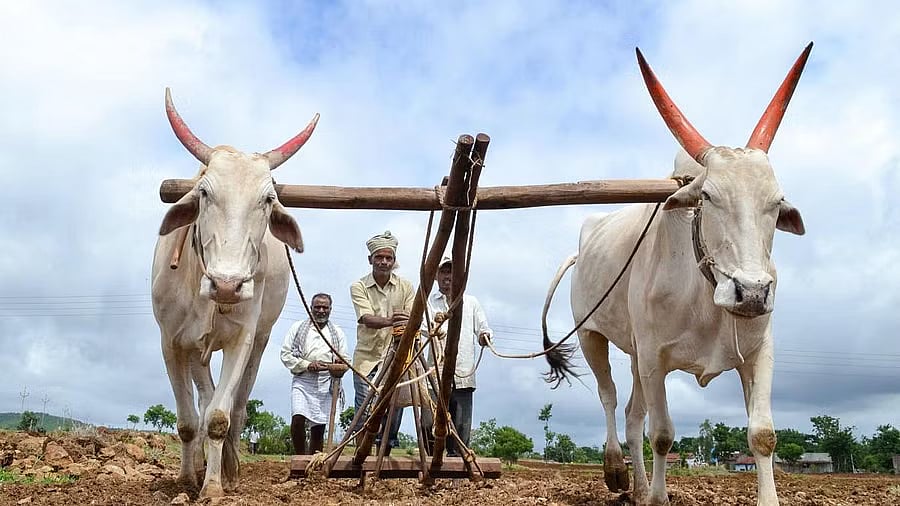
Farmer with ox
Credit: iStock Photo
Shubha Khatawkar Mhetras
It was 8 pm around 38 years ago and the absolute silence was interrupted only by the chirping of crickets. As an eighth-grader, I recall an evening spent diligently immersed in my homework, with my mother embroidering beside me. My childhood home in Belgaum was a place of tranquility, free from the distractions of modern gadgets. My father, a veterinary assistant director, was away in Madras for a conference. We lived in the staff quarters on the hospital premises.
An urgent knock on our door shattered the quietude. A distressed, tall and robust, man named Dhondiba stood there, seeking immediate help for his ailing ox. My mother informed him that my father was out of town and suggested he return in a few days. Dhondiba, however, couldn’t wait and implored her to call the doctor. My mother had to firmly insist that there was nothing to be done at that moment, as it was just the two of us at home since both my brothers were studying elsewhere.
People bringing their pets and farm animals for treatment after hospital hours wasn’t uncommon for us. My father kept emergency medicines at home for such situations.
Living on the hospital premises, I had developed a deep affection for animals, observing how my father cared for them. He sometimes provided medicines to animals at home after hospital hours. Initially, I used to sit with him and watch everything. However, my father eventually expressed his disapproval, advising me not to be present in the hall during these procedures. I found a way to watch through a hole in a wall that separated their bedroom from the hall where he worked.
The next morning, Dhondiba returned, and I was rushing off to school. He explained his ox’s dire condition, suffering from foot and mouth disease. With no means to contact my father, I hurried to school, worried about
his persistence.
Upon my return that evening, I found Dhondiba still waiting on our doorstep. My mother informed me that he had been there all day, refusing to eat. It moved me deeply. I rushed to our storeroom, retrieved medicines, and instructed him on how to administer it.
Three days later, my father returned, unaware of my secret operation. Dhondiba approached us, overjoyed, proclaiming that his ox had fully recovered. I shared the entire story with my father, who, while pleased, cautioned me not to repeat such actions, fearing it could damage his professional reputation and jeopardise his job. My clandestine animal care operations came to an end.
Years have passed, yet the memory of Dhondiba’s desperate plea and his ox’s miraculous recovery still lingers. Although his ox survived thanks to my limited knowledge of medicines, I could sense that it would have been a great loss if things had taken a turn for the worse. This experience deepened my compassion for animals and fostering empathy for disadvantaged farmers like him, for whom their livestock is their lifeline.